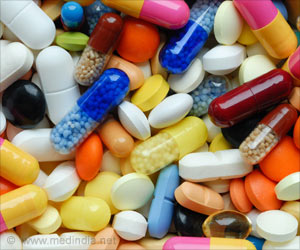A study conducted by CDDEP, New Delhi shows that in 2010, India was the largest consumer of antibiotics ahead of China and the US.

"MRSA (Methicillin-resistant Staphylococcus aureus) resistance rates have remained high in India. Carbapenem resistance has been increasing overtime. Overall, India has one of the highest rates of antibiotic resistance in the world," Ramanan Laxminarayan, director, CDDEP, and a lead author of the study told IANS on Thursday.
MRSA is a common pathogen responsible for skin and soft tissue infections, severe bloodstream infections, and pneumonia. Carbapenems are considered last-resort antibiotics, used for infections that are resistant to first-, second- and even third-line antibiotics.
The countries consuming the most antibiotics overall in 2010 were India (13 billion Standard Unit (SU)), China (10 billion SU) and the US, (7 billion SU), according to the study. In terms of human use of antibiotics, the report said the highest rates of increase are in middle-income countries, particularly the BRICS, a trend that is likely to continue as incomes continue to rise.
"BRICS had the greatest upsurge in antibiotic use from 2000 through 2010:68 percent in Brazil, 19 percent in Russia, 66 percent in India, 37 percent in China, and 219 percent in South Africa," the report said.
Explaining the trends further, Laxminarayan said the increased demand for animal protein and resulting intensification of food animal production is leading to greater use of antibiotics in agriculture, again driving resistance.
Advertisement
Though the Indian Council of Medical Research began setting up the Anti-Microbial Resistance Surveillance Network in 2011, Laxminarayan said surveillance alone is not enough. The key is preventing intake of antibiotics in cases where they are not needed.
Advertisement
Source-IANS















